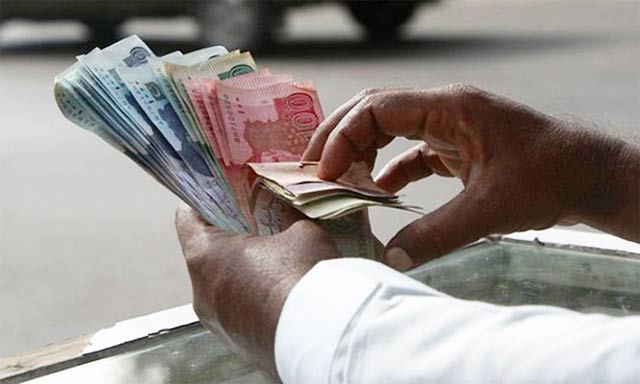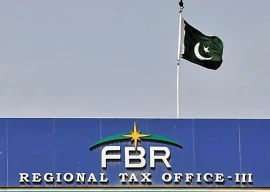
Income tax payments by the salaried class in just five months of the current fiscal year reached around Rs200 billion, up Rs72 billion, but the Federal Board of Revenue (FBR) remained unable to use the transactions' information to demand tax from the people not paying their due share.
As compared to the massive increase in tax burden on the salaried class, the revenue being generated through the audit of taxpayers or using the available information fell 16% to Rs26 billion during the July-November period of fiscal year 2024-25. Audit is a cumbersome process compared to the easy money being generated by collecting taxes from the salaried class or through electricity bills, mobile phone connections and debit and credit cards.
The FBR has missed its five-month tax receipt target by Rs341 billion and the shortfall is expected to widen substantially by the end of December. The salaried people paid Rs198 billion from July to November, which was Rs72 billion, or 57%, higher than the same period of last year, according to data compiled by the tax authorities.
Prime Minister Shehbaz Sharif's government increased the tax burden on salaried individuals in June this year, instead of cutting expenditures or expanding the tax base to include the untaxed sectors.
The taxes collected through audit have dropped by Rs5 billion, or 16%, according to the FBR's figures. As compared to the Rs31 billion collected in the first five months of last fiscal year, the FBR received less than Rs26 billion in the current year, said the sources.
A senior FBR official said that one of the reasons for the low collection was that it was not easier to freeze bank accounts and recover the disputed tax due to court judgements.
When the tax collection via audit dipped 16%, the citizens, while fearing that the FBR may abolish the non-filer category, filed income tax returns before the extended deadline. They deposited Rs145 billion along with 5.6 million tax returns during the current fiscal year. The amount was Rs48 billion, or nearly 50%, more than the last year when the taxpayers submitted 3.4 million returns.
But the government has not yet been able to amend the Income Tax Ordinance to abolish the non-filer category. Out of the Rs198 billion, the income tax of Rs53 billion was paid by all federal and provincial government employees, who got a 20-25% pay increase in the budget.
The remaining Rs145 billion was paid by private sector employees, who often do not get any annual increase in salaries. Details showed that the non-corporate salaried class paid Rs86 billion in income tax in July-November FY25, up Rs25.4 billion, or 42%. Corporate sector employees paid Rs59 billion, higher by Rs21 billion, or 56%.
Employees of the four provincial governments paid Rs33 billion in income tax, up Rs17 billion, or 109%. Federal government employees paid Rs20 billion, which was Rs8 billion, or 71%, more than last year.
The FBR collected less than Rs13 billion on the supply of goods to traders. The tax contribution from the salaried people was 1,423% higher than the combined taxes received from goods supply to traders.
In order to improve the FBR's audit capacity, the new administration is hiring 1,620 auditors from the private sector. FBR chairman has told a cabinet committee that it is severely understaffed, with only 355 auditors on the domestic taxes side, which has restricted its day-to-day audit activities. There is a shortage of 1,559 auditors on the domestic taxes side and 60 auditors on the Customs side for post-clearance audit.
However, it is said that collection through tax demand is a long process, which usually reflects in quarterly and half-year numbers.
The FBR has also used audit as a tool to get taxes in advance to meet its monthly targets. It often goes to the extent of freezing bank accounts of companies. During the July-November period, the FBR got Rs483 billion in advance income tax, mostly on account of legally required tax payments. The amount was 20% higher than the previous fiscal year. In September 2022, Pakistan LNG Limited sought protection of the Islamabad High Court against "the unconstitutional, unlawful and mala fide actions of the FBR".
The FBR in breach of Section 137 of the Income Tax Ordinance, 2001 proceeded against the firm and "unlawfully depleted the capital reserves held at Habib Metropolitan Bank and National Bank of Pakistan located in Islamabad".
The appellate order passed by the FBR's commissioner appeals was uploaded on the revenue board's web portal at 3:28pm on March 9, 2022 and its officer issued a Section 140 notice to the banks at 4pm on the same day.
The company's accounts were attached and the amount was recovered instantly under the threat of penal action against the banks in case they demurred, showed the court orders. Justice Babar Sattar wrote "the court would like to observe that the pernicious practice of forcing tax officials to use state power to meet fixed fund-raising targets must end. The state is responsible to uphold constitutional guarantees made to the citizens and not act as a blunt tool undermining the same".



















COMMENTS
Comments are moderated and generally will be posted if they are on-topic and not abusive.
For more information, please see our Comments FAQ